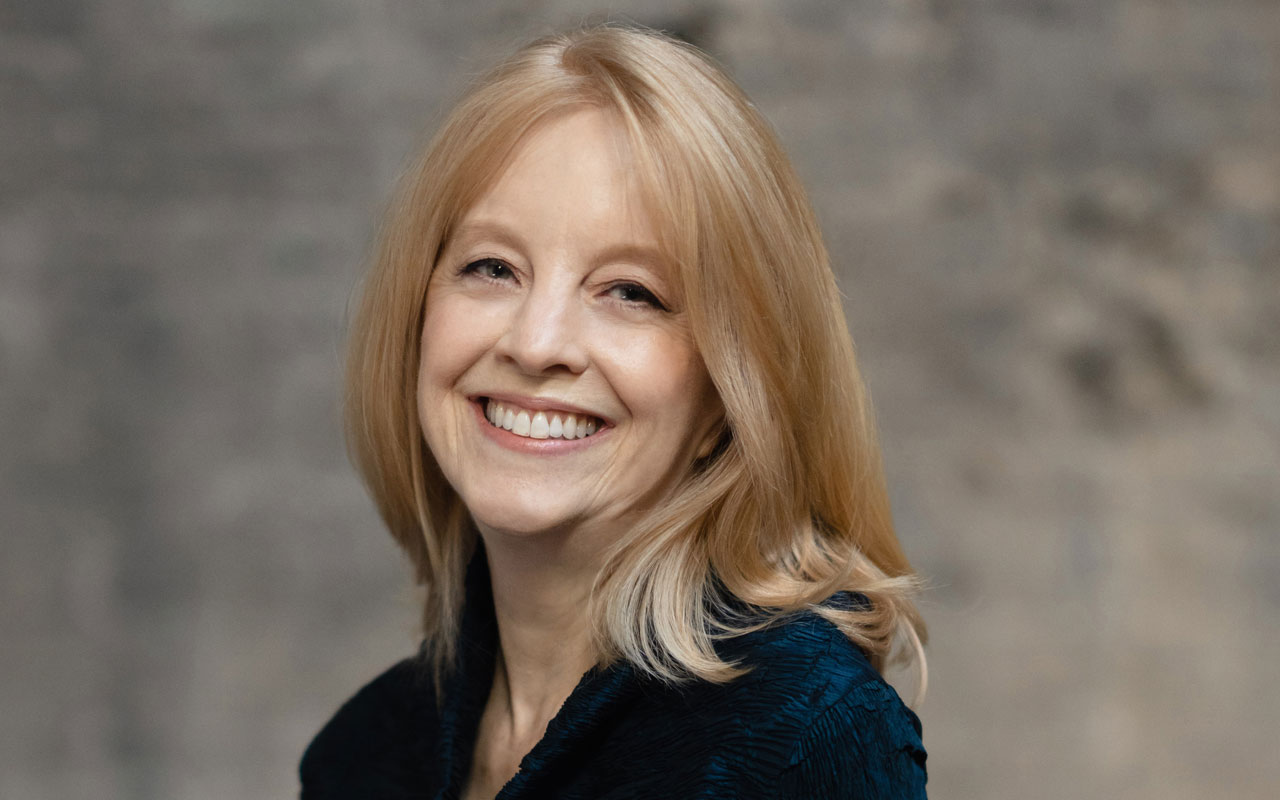
Maria Schneider photo by Briene Lermitte
Tuesday, February 28, 7:30pm
Town Hall, Great Hall
1119 8th Ave
$10-65
What does music have to say about the surveillance state in big tech? Maria Schneider seems to know how to embrace this intrepid horizon. Her 2020 release of the futurist Data Lords, an eleven-track jazz orchestral composition, shares a textural and expansive inquiry on the dangers of mechanical consciousness and control.
Maria Schneider Orchestra will perform in Seattle on February 28 in Town Hall’s Great Hall. The concert will combine a repertoire from Data Lords as well as others from her prolific oeuvre. Besides earning a Grammy Award, Data Lords was also honored with a Pulitzer Prize in Music for its warning tones on issues of power and privacy in modern data. The Pulitzer accolade follows the legacy of other virtuosic and socially impactful artists such as Kendrick Lamar, whose poetic lyrics in DAMN. earned him a respected place amongst other venerable writers, musicians, and dramatists.
The performance of Data Lords will resonate in contrast against the backdrop of Seattle, where around 75,000 of its citizens work for Amazon, according to a recent estimate by KUOW. Keyword searches for the company filter out articles that caution the company’s dominance in the advertising industry, or advise against placing Alexa devices in private areas. Seattle is arguably the most condensed locus of technological control in the country, and the city will face a sonic challenge in the form of Maria Schneider’s symphonic jazz exchange.
Schneider’s compositions are often weightless and euphoric, experimental in that its smooth inner focus is most often conveyed through the streamlined cacophony of a twenty-person orchestra. This characteristic glimmers throughout the second part of Data Lords, which is a disc titled “The Natural World.” In this part, Schneider plays around with the meaning of true, interhuman relation in a time of spiritual scarcity. Its counterpart, “The Digital World,” reckons with the sordid reality of technology as a divisive, rather than unifying, entity.
Schneider describes humanness as the basis of inimitable spontaneity, a sort of relational magic which AI and other machine-based simulations simply cannot replicate (because future outputs are always and already predetermined by previous inputs). The freestyle shifts that emerge from simply existing in connection with other life forms is an experience that, Schneider says, is well-depicted by the metaphor of improvisational jazz.
The ensemble consists of Maria Schneider (composer/conductor), Steve Wilson (alto saxophone), Dave Pietro (alto saxophone), Rich Perry (tenor saxophone), Donny McCaslin (tenor saxophone), Scott Robinson (baritone saxophone), Greg Gisbert (trumpet), Michael Dudley (trumpet), Nadje Noordhuis (trumpet), Mike Rodriguez (trumpet), Keith O’Quinn (trombone), Ryan Keberle (trombone), Marshall Gilkes (trombone), George Flynn (bass trombone), Julien Labro (accordion), Ben Monder (guitar), Gary Versace (piano), Jay Anderson (bass), Johnathan Blake (drums), and Fred Vogler (sound engineer).
“One of the things that is so wonderful about seeing my band perform is that the music, and the jazz, and the way they listen to each other is vulnerable. And they really listen and allow people to take them to places they didn’t plan on,” said Schneider. “There is an emphasis on the power of human connection and relation, on vulnerability and surprises.”
Schneider’s performance in Seattle will occur at the 30th-anniversary milestone of her first orchestral tours. Throughout the last few decades, Schnieder has worn many hats in the process of her creative expansion. From composing and conducting nine different album tours to collaborating with renowned artists such as David Bowie, the jazz maestra has evolved through explorative journeys with the musical medium.
“In this time, jazz is becoming relevant more than ever,” Schneider concluded. “People say we need to preserve jazz because it is America’s art form. I say we need to preserve jazz because it is relevant right now. It is showing us what we are losing in the world in terms of connectivity with each other.”